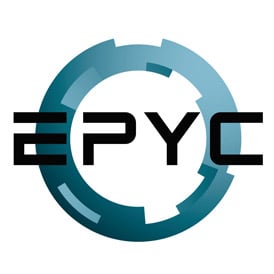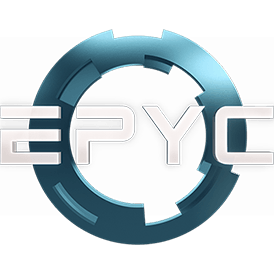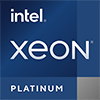
AMD EPYC 7662 vs AMD EPYC 7702
Last updated:
CPU comparison with benchmarks

|
 |

|
| AMD EPYC 7662 | AMD EPYC 7702 | |
CPU comparisonAMD EPYC 7662 or AMD EPYC 7702 - which processor is faster? In this comparison we look at the differences and analyze which of these two CPUs is better. We compare the technical data and benchmark results.
The AMD EPYC 7662 has 64 cores with 128 threads and clocks with a maximum frequency of 3.30 GHz. Up to GB of memory is supported in 8 memory channels. The AMD EPYC 7662 was released in Q1/2020. The AMD EPYC 7702 has 64 cores with 128 threads and clocks with a maximum frequency of 3.35 GHz. The CPU supports up to GB of memory in 8 memory channels. The AMD EPYC 7702 was released in Q3/2019. |
||
| AMD EPYC (129) | Family | AMD EPYC (129) |
| AMD EPYC 7002 (24) | CPU group | AMD EPYC 7002 (24) |
| 2 | Generation | 2 |
| Rome (Zen 2) | Architecture | Rome (Zen 2) |
| Desktop / Server | Segment | Desktop / Server |
| -- | Predecessor | -- |
| AMD EPYC 7763 | Successor | -- |
|
|
||
CPU Cores and Base FrequencyThe AMD EPYC 7662 is a 64 core processor with a clock frequency of 2.00 GHz (3.30 GHz). The AMD EPYC 7702 has 64 CPU cores with a clock frequency of 2.00 GHz (3.35 GHz). |
||
| AMD EPYC 7662 | Characteristic | AMD EPYC 7702 |
| 64 | Cores | 64 |
| 128 | Threads | 128 |
| normal | Core architecture | normal |
| Yes | Hyperthreading | Yes |
| No | Overclocking ? | No |
| 2.00 GHz | Frequency | 2.00 GHz |
| 3.30 GHz | Turbo Frequency (1 Core) | 3.35 GHz |
| 2.40 GHz | Turbo Frequency (All Cores) | 2.50 GHz |
Memory & PCIeThe AMD EPYC 7662 supports a maximum of GB of memory in 8 memory channels. The AMD EPYC 7702 can connect up to GB of memory in 8 memory channels. |
||
| AMD EPYC 7662 | Characteristic | AMD EPYC 7702 |
| DDR4-3200 | Memory | DDR4-3200 |
| Max. Memory | ||
| 8 (Octa Channel) | Memory channels | 8 (Octa Channel) |
| 51.2 GB/s | Max. Bandwidth | 51.2 GB/s |
| Yes | ECC | Yes |
| -- | L2 Cache | -- |
| 256.00 MB | L3 Cache | 256.00 MB |
| 4.0 | PCIe version | 4.0 |
| 128 | PCIe lanes | 128 |
| 252.0 GB/s | PCIe Bandwidth | 252.0 GB/s |
Thermal ManagementThe TDP (Thermal Design Power) of a processor specifies the required cooling solution. The AMD EPYC 7662 has a TDP of 225 W, that of the AMD EPYC 7702 is 200 W. |
||
| AMD EPYC 7662 | Characteristic | AMD EPYC 7702 |
| 225 W | TDP (PL1 / PBP) | 200 W |
| -- | TDP (PL2) | -- |
| -- | TDP up | -- |
| -- | TDP down | -- |
| -- | Tjunction max. | -- |
Technical detailsThe AMD EPYC 7662 has a 256.00 MB cache, while the AMD EPYC 7702 cache has a total of 256.00 MB. |
||
| AMD EPYC 7662 | Characteristic | AMD EPYC 7702 |
| 7 nm | Technology | 7 nm |
| Chiplet | Chip design | Chiplet |
| x86-64 (64 bit) | Instruction set (ISA) | x86-64 (64 bit) |
| SSE4a, SSE4.1, SSE4.2, AVX2, FMA3 | ISA extensions | SSE4a, SSE4.1, SSE4.2, AVX2, FMA3 |
| SP3 | Socket | SP3 |
| AMD-V, SVM | Virtualization | AMD-V, SVM |
| Yes | AES-NI | Yes |
| Windows 10, Linux | Operating systems | Windows 10, Linux |
| Q1/2020 | Release date | Q3/2019 |
| -- | Release price | 8000 $ |
| show more data | show more data | |
Rate these processors
Average performance in benchmarks
⌀ Single core performance in 2 CPU benchmarks
⌀ Multi core performance in 3 CPU benchmarks
Geekbench 5, 64bit (Single-Core)
Geekbench 5 is a cross plattform benchmark that heavily uses the systems memory. A fast memory will push the result a lot. The single-core test only uses one CPU core, the amount of cores or hyperthreading ability doesn't count.
|
|
AMD EPYC 7662
64C 128T @ 3.30 GHz |
||
|
|
AMD EPYC 7702
64C 128T @ 3.35 GHz |
||
Geekbench 5, 64bit (Multi-Core)
Geekbench 5 is a cross plattform benchmark that heavily uses the systems memory. A fast memory will push the result a lot. The multi-core test involves all CPU cores and taks a big advantage of hyperthreading.
|
|
AMD EPYC 7662
64C 128T @ 2.40 GHz |
||
|
|
AMD EPYC 7702
64C 128T @ 2.50 GHz |
||
Cinebench R20 (Single-Core)
Cinebench R20 is the successor of Cinebench R15 and is also based on the Cinema 4 Suite. Cinema 4 is a worldwide used software to create 3D forms. The single-core test only uses one CPU core, the amount of cores or hyperthreading ability doesn't count.
|
|
AMD EPYC 7662
64C 128T @ 3.30 GHz |
||
|
|
AMD EPYC 7702
64C 128T @ 3.35 GHz |
||
Cinebench R20 (Multi-Core)
Cinebench R20 is the successor of Cinebench R15 and is also based on the Cinema 4 Suite. Cinema 4 is a worldwide used software to create 3D forms. The multi-core test involves all CPU cores and taks a big advantage of hyperthreading.
|
|
AMD EPYC 7662
64C 128T @ 2.40 GHz |
||
|
|
AMD EPYC 7702
64C 128T @ 2.50 GHz |
||
Estimated results for PassMark CPU Mark
Some of the CPUs listed below have been benchmarked by CPU-monkey. However the majority of CPUs have not been tested and the results have been estimated by a CPU-monkey’s secret proprietary formula. As such they do not accurately reflect the actual Passmark CPU mark values and are not endorsed by PassMark Software Pty Ltd.
|
|
AMD EPYC 7662
64C 128T @ 2.40 GHz |
||
|
|
AMD EPYC 7702
64C 128T @ 2.50 GHz |
||
Cinebench R23 (Single-Core)
Cinebench R23 is the successor of Cinebench R20 and is also based on the Cinema 4 Suite. Cinema 4 is a worldwide used software to create 3D forms. The single-core test only uses one CPU core, the amount of cores or hyperthreading ability doesn't count.
|
|
AMD EPYC 7662
64C 128T @ 3.30 GHz |
||
|
|
AMD EPYC 7702
64C 128T @ 3.35 GHz |
||
Cinebench R23 (Multi-Core)
Cinebench R23 is the successor of Cinebench R20 and is also based on the Cinema 4 Suite. Cinema 4 is a worldwide used software to create 3D forms. The multi-core test involves all CPU cores and taks a big advantage of hyperthreading.
|
|
AMD EPYC 7662
64C 128T @ 2.40 GHz |
||
|
|
AMD EPYC 7702
64C 128T @ 2.50 GHz |
||
Geekbench 6 (Single-Core)
Geekbench 6 is a benchmark for modern computers, notebooks and smartphones. What is new is an optimized utilization of newer CPU architectures, e.g. based on the big.LITTLE concept and combining CPU cores of different sizes. The single-core benchmark only evaluates the performance of the fastest CPU core, the number of CPU cores in a processor is irrelevant here.
|
|
AMD EPYC 7662
64C 128T @ 3.30 GHz |
||
|
|
AMD EPYC 7702
64C 128T @ 3.35 GHz |
||
Blender 2.81 (bmw27)
Blender is a free 3D graphics software for rendering (creating) 3D bodies, which can also be textured and animated in the software. The Blender benchmark creates predefined scenes and measures the time (s) required for the entire scene. The shorter the time required, the better. We selected bmw27 as the benchmark scene.
|
|
AMD EPYC 7662
64C 128T @ 2.40 GHz |
||
|
|
AMD EPYC 7702
64C 128T @ 2.50 GHz |
||
Devices using this processor |
|
| AMD EPYC 7662 | AMD EPYC 7702 |
| Unknown | Unknown |
Popular comparisons containing this CPUs
back to index









